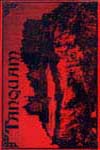
General Info:
The exact date of the band's foundation isn't mentioned even on its official site, but it's common knowledge that the first performance took place in 1994 on one of the festivals of Yaroslavl - the latter is the place where the band is located. Most of the creative work in based on the band's own mythology (City of Tanquam) and the musicians themselves call their style "trance-myth". At writing Tanquam has five recorded demos - the latest dates back to the year 1999. As misfortune would have it, and it might be caused by financial difficulties, all the records of the band are nothing but material directly recorded from Ensoniq synthesiser and differ greatly from their live performances (if you had been on their triumphant concert on Dark Electro Party II in Moscow, you would have known what we're talking about - two excellent female voices, live exotic percussion and drums - all this combined was perfect) and do not contain vocals or live percussion. The style of the demos can be referred to as neo-classic. We wish Tanquam made us happy by a new professional recording soon.
Discography:
"Mono No Avare" - 1994 (demo tape)
 "Myth" - 1995 (demo tape)
"Myth" - 1995 (demo tape)
"48 Steps" - 1996 (demo tape)
"The Wheel of Time" - 1999 (demo tape)
Side-projects:
Irene Kuznetsova "Katun-Atau" - 1995 (demo tape)
Music:
"Myth" - 1995 (demo tape)
 Tiama
Tiama
 Myth (fragment)
Myth (fragment)
Reviews:
TANQUAM "Myth" - 1995
This neo-classic band from Yaroslavl seems to be a pioneer of russian gothic neo-classic music. Their previous demo ("mono no avare") was recorded in 1994. The musicians themselves call their style trance-myth, which confused me and thus, knowing about the band since 1996, I made no efforts to get acquainted with their material as I was afraid of the odious style, and only lately, thanks to Rockman, I finally got to know them and I confess I'm impressed - this is one of the most original Russian electronic projects. Their demo "Myth" combines ethereal-gothic passages and neo-classic storms, and even some ambient fragments. The music itself is deeply neo-classical. When listening, one gets surprised that all of the material was created by means of synthesisers only, as well as when listening to Stoa or Ophelia's Dream. There are also some ritual, sacral fragments, and such combination of neo-classic and ritual music is truly nontrivial. A very nice and interesting demo, strongly recommended. PS. The only disadvantage is absence of vocals, so comparison with bands from Hyperium is symbolic.
TANQUAM "48 Steps" - 1996
This album develops the ideas of the "Myth" demo. Frankly speaking, I like this demo less than Myth, because all tracks are too long, 45 minutes each, so it's rather inconvenient to perceive. The music has become less neo-classical, inclining to dark ambient; it seems to me that the best description is, "dark ambient with neo-classical elements". Some stuff of the album can make good soundtracks for a horror movie. Though the absence of vocals on Myth was a disadvantage, here it would be absolutely unnecessary; such music goes well without any. PS. Tanquam's way of writing albums is great: if they ever record CDs, they'd be able to make six out of three albums, for each album is 90 minutes in length.
Irene Kuznetsova "Katun-Atau" - 1996
To tell the truth, I'm disillusioned: waiting for a solo-project of a girl from Tanquam, I was hoping to hear something like Myth, but with vocals. My dream did not come true: unfortunately, all the tracks were instrumental. The music is fully electronic, but it doesn't resemble Tanquam; it's more like an improvisation with various themes. Not a trace of Tanquam's ambient or ethereal. The album is very eclectic and because of that it's hard to perceive; I can't say I was enchanted by Irene's music, but it's worth listening.
Tanquam "The Wheel of Time" - 1999
And again: true delight! This music is brimming with power and energy. It's done so wonderfully, that you assess your own hopelessness trying to describe it in words. And why should it be done - music is to be listened.
The only disadvantage is that, however symphonic may the pieces be, they are not very well recorded. This lack of quality is double: on one hand, it's technical, as the tape record is noisy, and on the other hand, the very process of realisation was nothing more but trivial plugging the recorded to Ensoniq directly, without adding any effects or acoustic instruments.
Listening to this tape, I imagine how greatly could it be recorded! Add real acoustic drums - for Alexander is a fantastic drummer! In general, the album lacks some little features that would have made it a masterpiece.
Good simphonic music, which is suitable to be recorded with an orchestra. Its style very much resembles Christian Wander's "Magma".
Excellent!
Links:
Line-up:
Irene Kuznetsova Alexander Nikitin Eugene Bibik
Contacts:
address: Alexander Nikitin, 131-10, Moskovsky pr., Yaroslavl, 150030, Russia